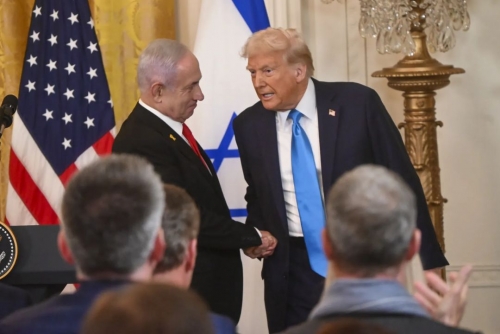House Democrats Urge President Trump to Retract "Dangerous" Gaza Comments
TDT | Manama
Email: mail@newsofbahrain.com
Over two-thirds of House Democrats have signed a letter urging President Donald Trump to retract his recent comments suggesting the U.S. "take over" the Gaza Strip, warning that the remarks were "dangerous" and could escalate tensions in the Middle East.
Trump's comments, made during a joint press conference with Israeli Prime Minister Benjamin Netanyahu last week, have sparked backlash across the political spectrum. The President stated that the U.S. would "take over" the Gaza Strip, "own it," and transform it into the "Riviera of the Middle East." He later doubled down on these statements, declaring that Palestinians would not have the right to return to Gaza, and reaffirming, "I would own this."
The letter, signed by 145 out of 215 House Democrats, was led by Reps. Sean Casten (D-Ill.) and Brad Sherman (D-Calif.). The lawmakers expressed concern that such rhetoric was not only morally indefensible but could also harm the U.S.' global standing. They argued that Trump's comments would put American troops in harm's way, escalate terrorism, and create an insurmountable roadblock to peace efforts in the region.
"We are alarmed that an American president would advocate for the forcible removal and permanent displacement of two million people," the letter read. The signatories emphasized the potential damage to U.S. relations with Arab partners, undermining future efforts to rebuild Gaza and find a peaceful resolution to its ongoing conflict with Israel.
The criticism of Trump's comments has not been limited to Democratic lawmakers. Some Republicans have also expressed concern, noting that the proposal runs counter to the President's claimed non-interventionist foreign policy and is largely unworkable.
The White House has yet to respond to requests for comment regarding the letter.
This growing controversy underscores the complexities of U.S. foreign policy in the Middle East, with both domestic and international implications as Trump’s remarks continue to generate intense debate.
Related Posts

